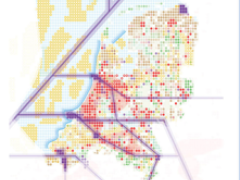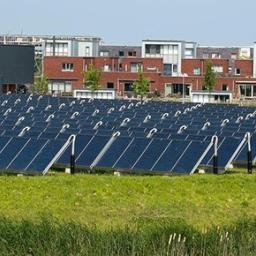Allocating planetary boundaries to large economies: Distributional consequences of alternative perspectives on distributive fairness
The planetary boundaries (PBs) framework proposes global quantitative precautionary limits for human perturbation of nine critical Earth system processes. Together they define a global safe operating space for human development. Translating the global limits to the national level increases their policy relevance. However, such translation essentially divides up the global safe operating space and what is considered fair distribution is a political decision.
In the article we analyse the distributional consequences of alternative perspectives on distributive fairness. We scale the global limits of selected PBs to resource budgets for the EU, US, China and India, using three allocation approaches from the climate change literature. Furthermore, we compare the allocated budgets to 2010 environmental footprints of the four economies, to assess their performance with respect to the selected PBs. The allocation approaches are based on (1) current shares of global environmental pressure (‘grandfathering’); (2) ‘equal per capita’ shares, and (3) ‘ability to pay’ to reduce environmental pressure.
All four economies exceed the global safe operating space
The results show that the four economies are not living within the global safe operating space. Their 2010 environmental footprints are larger than the allocated budgets for all approaches and parameterisations analysed for the PBs for climate change and biogeochemical flows, and, except for India, also for the PB for biosphere integrity. Grandfathering was found to be most favourable for the EU and US for all PBs, while equal per capita allocation and ability to pay were found most favourable for China and India. Results were sensitive to the parameterisation. Accounting for future population growth in equal per capita allocation benefits India, with lower budgets for the other economies, while accounting for future economic growth in ability to pay benefits the EU and US.
Our results underline the need for all four economies to act, while hinting at diverging preferences for specific allocation approaches. The methodology and results may help countries to define policy targets in line with global ambitions, such as those defined by the Sustainable Development Goals (SDGs), accounting for differences in countries’ circumstances and capacities.
Authors
Specifications
- Publication title
- Allocating planetary boundaries to large economies: Distributional consequences of alternative perspectives on distributive fairness
- Publication date
- 10 December 2019
- Publication type
- Article
- Publication language
- English
- Product number
- 3126



